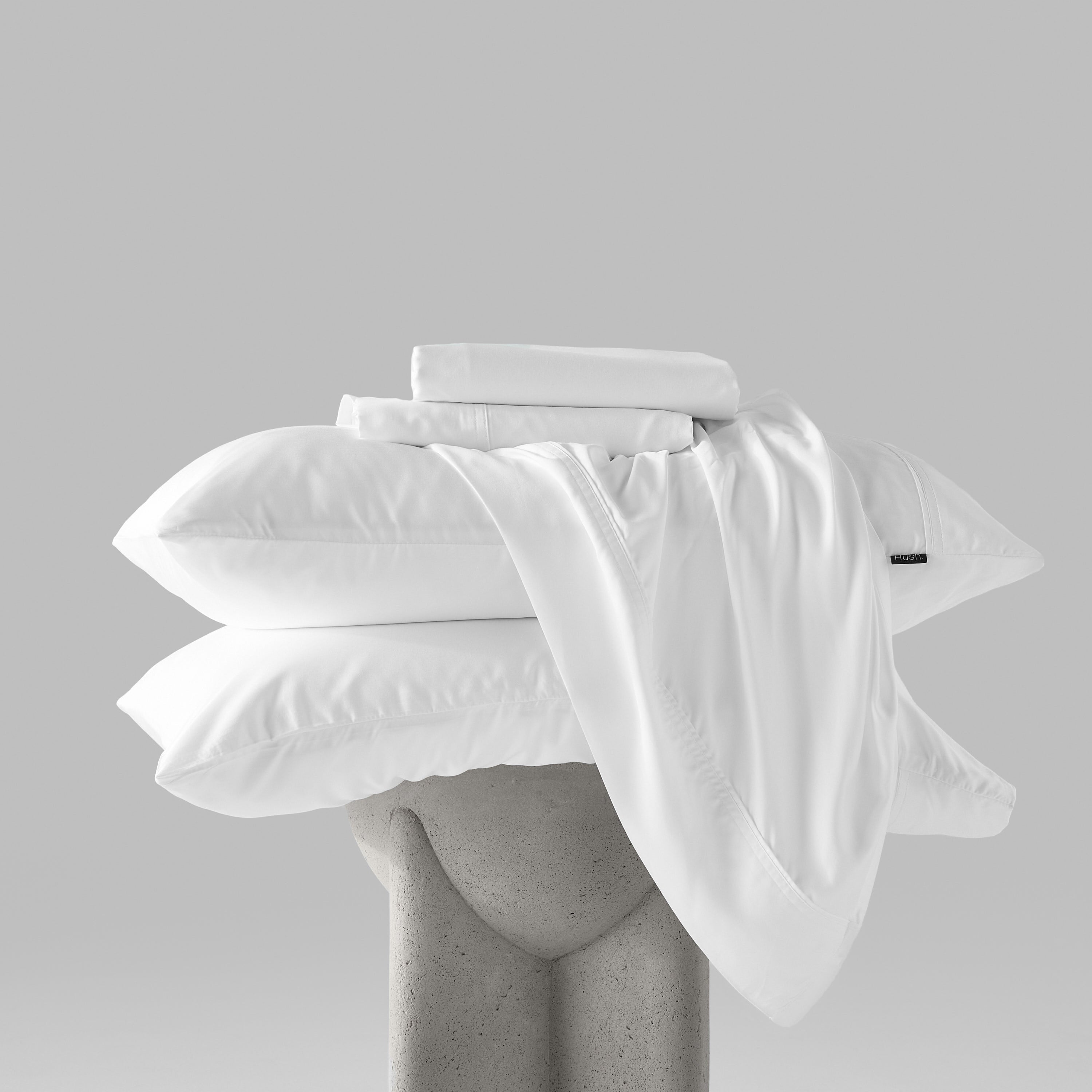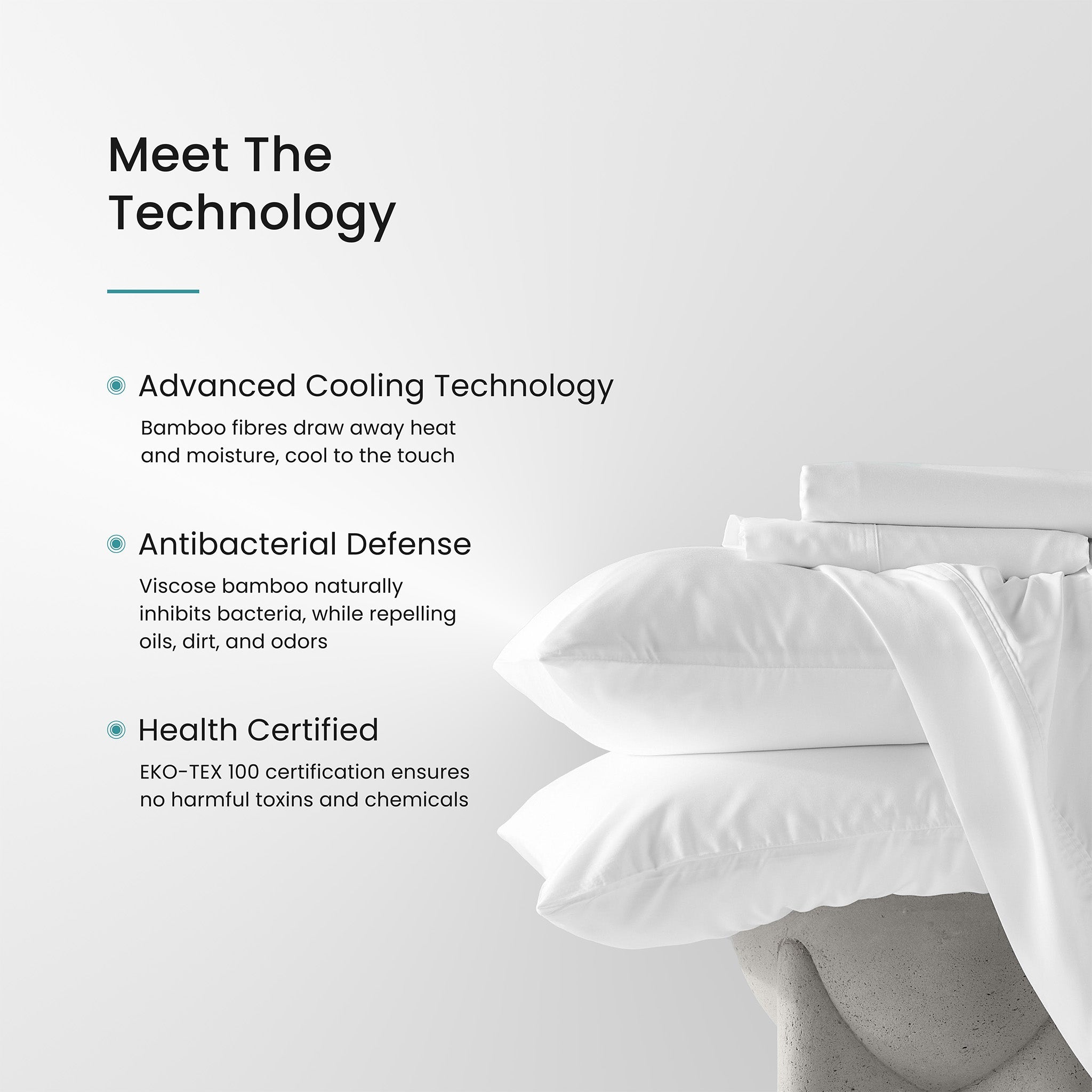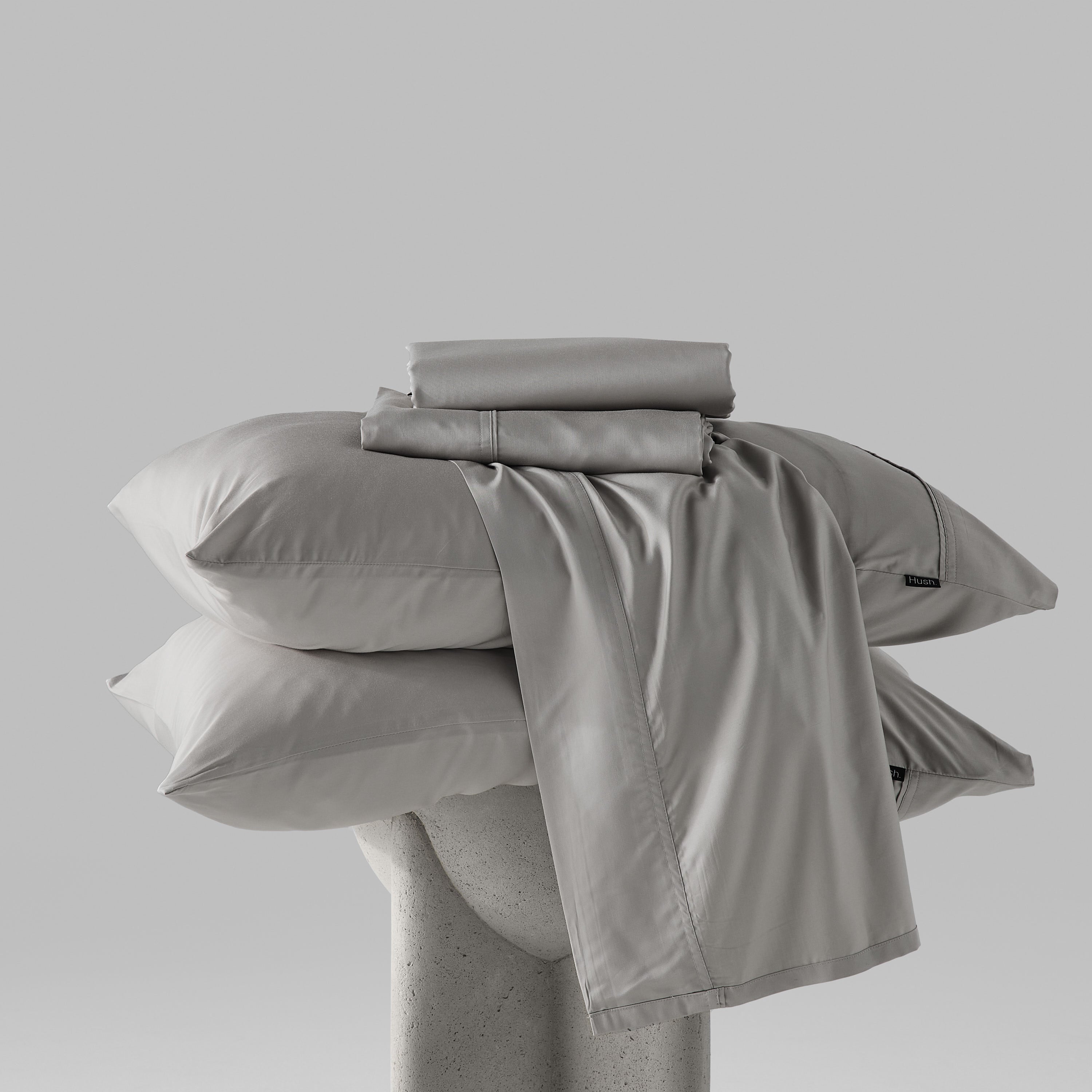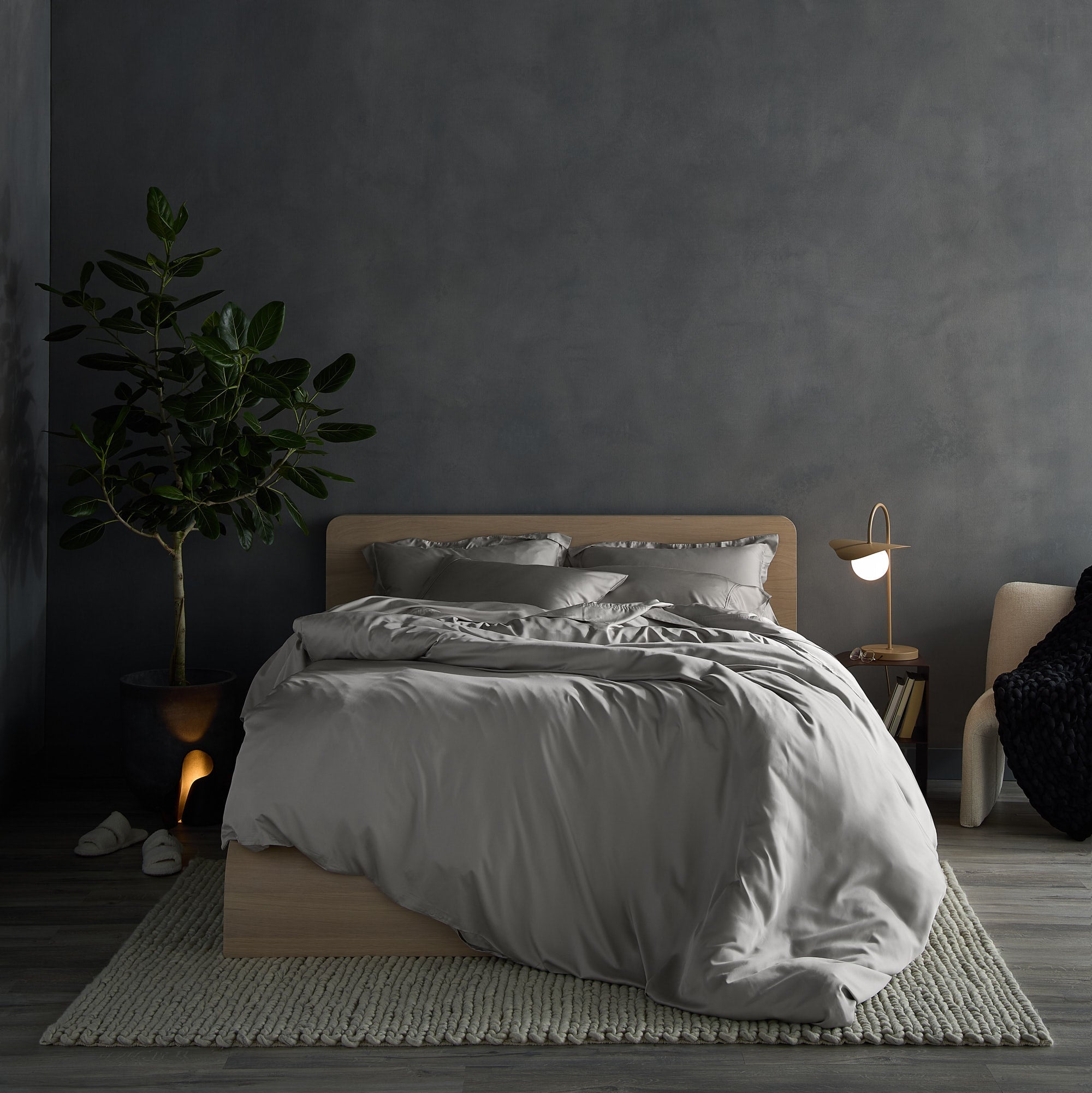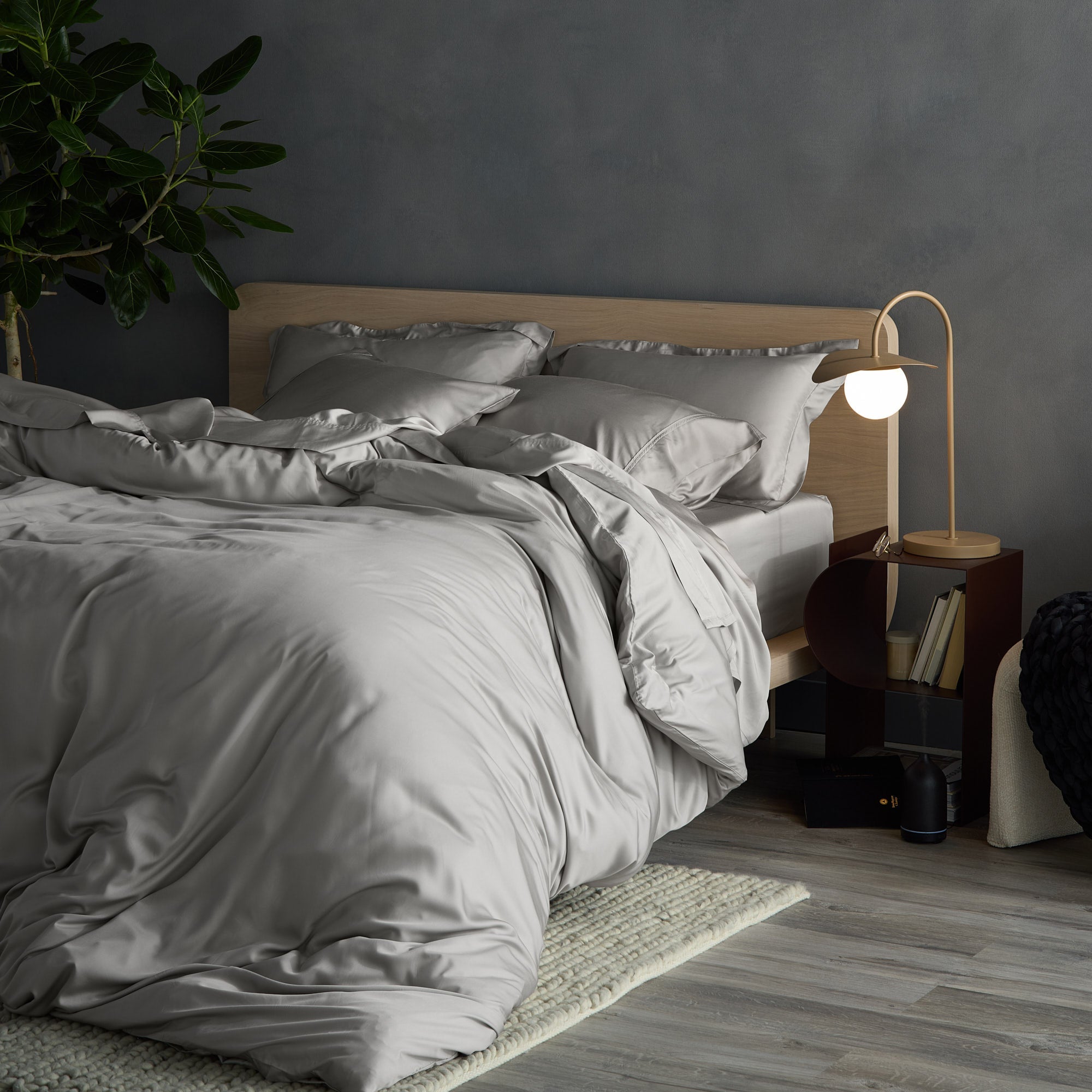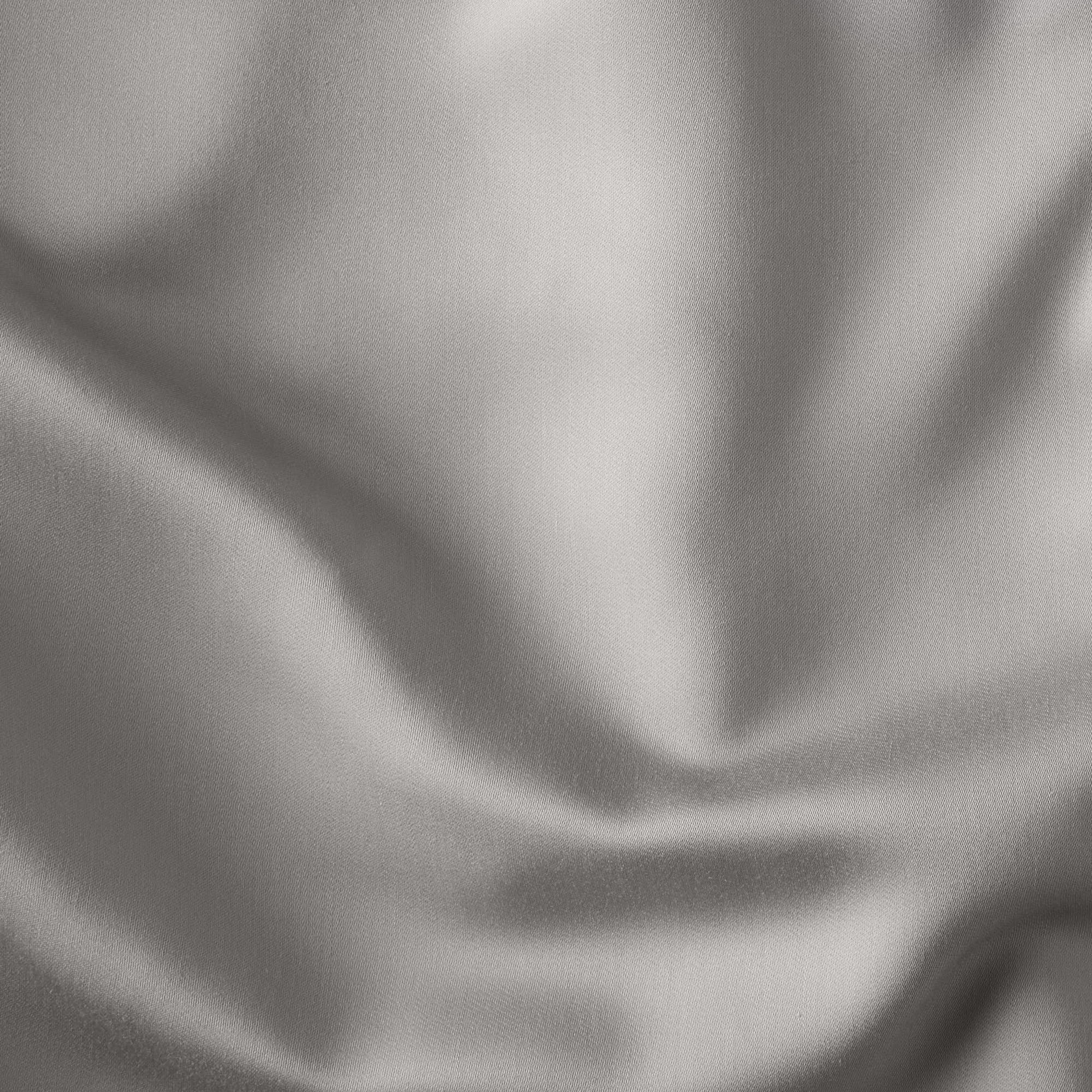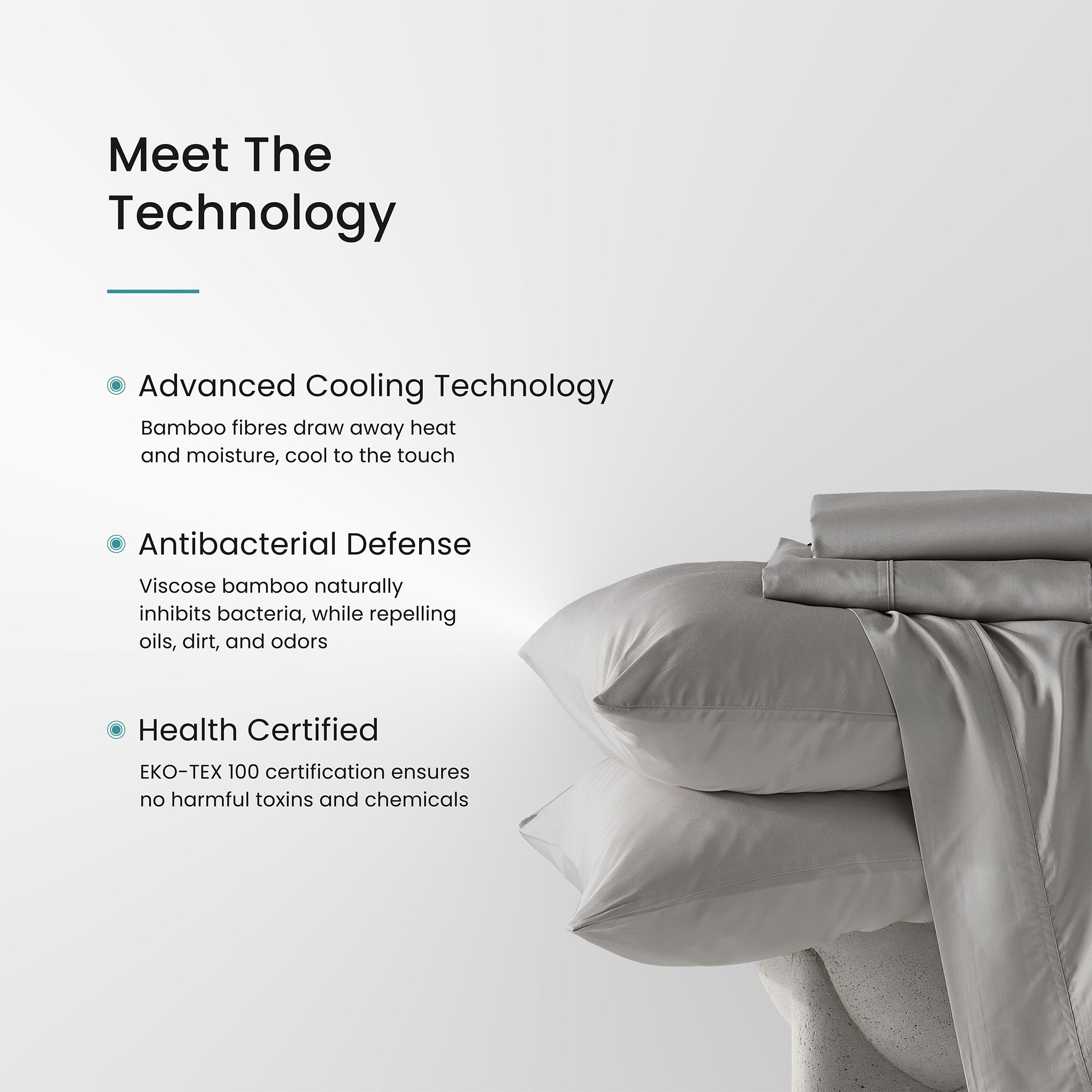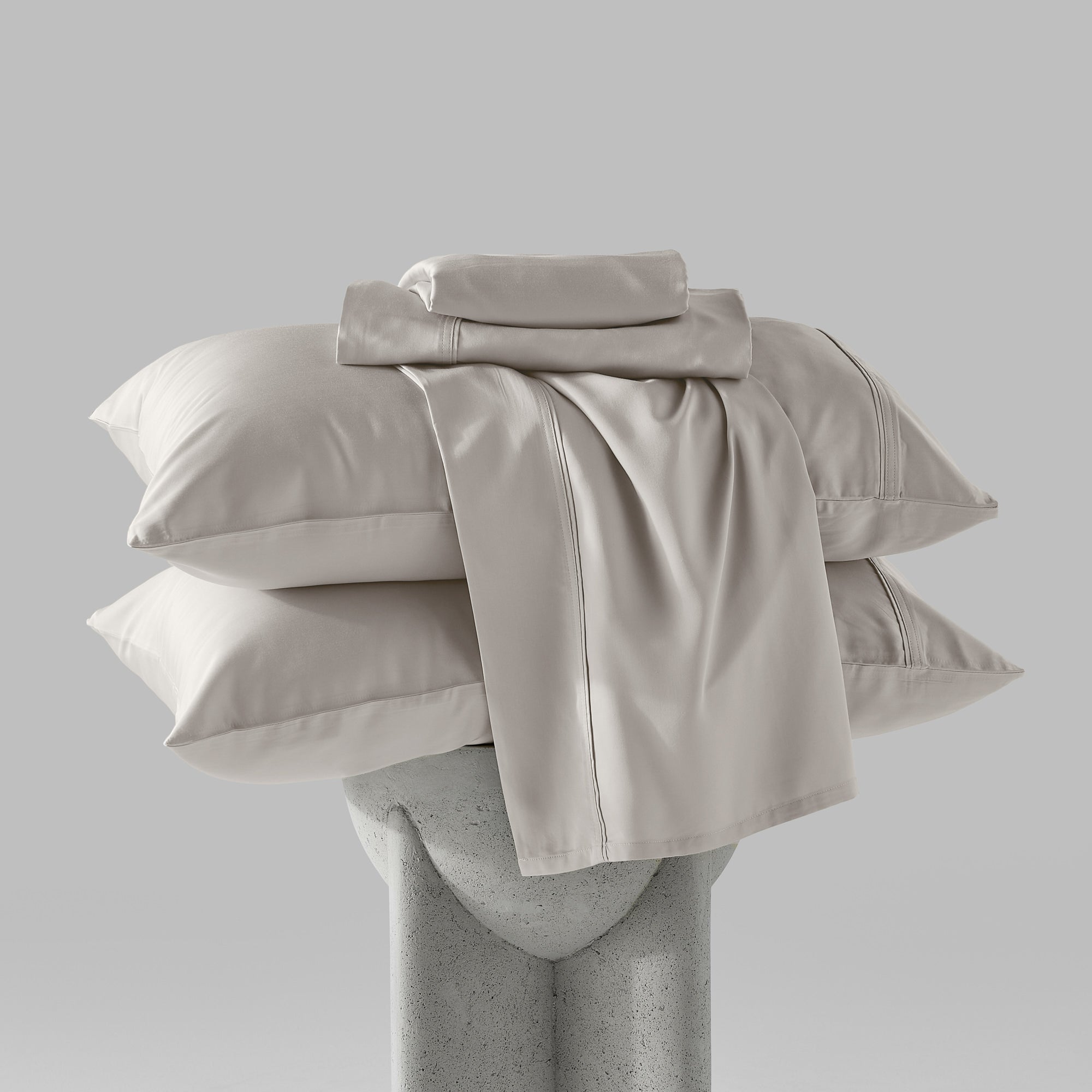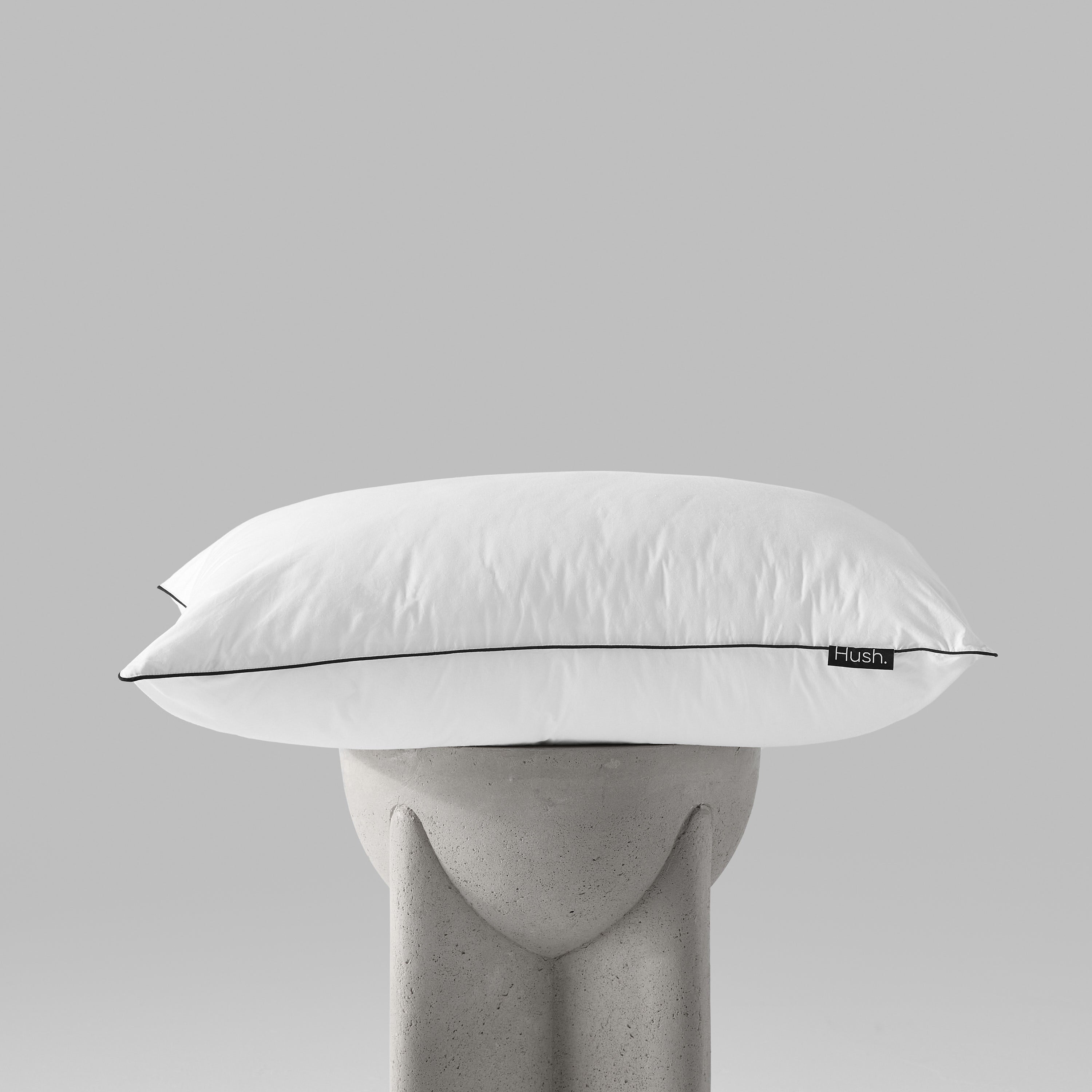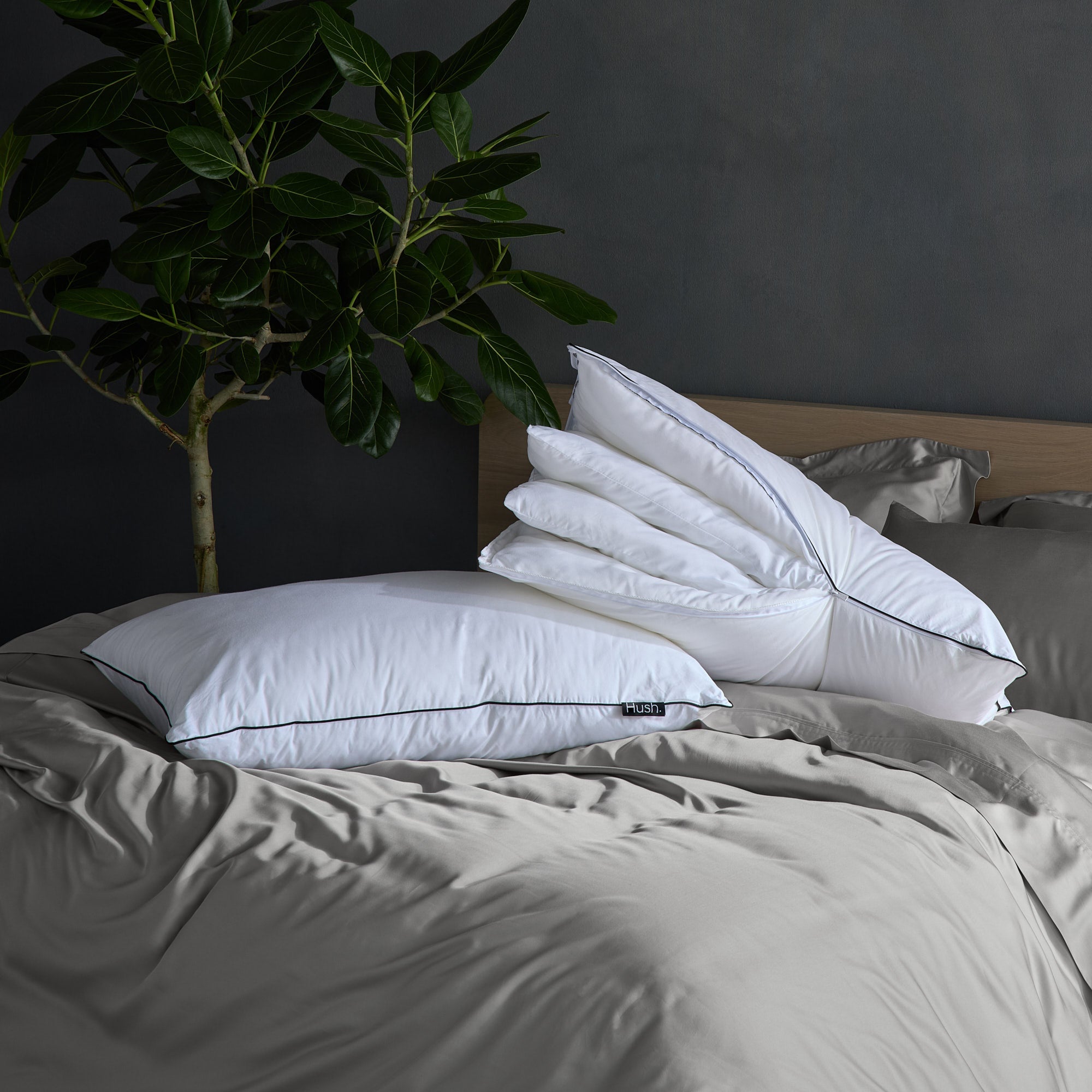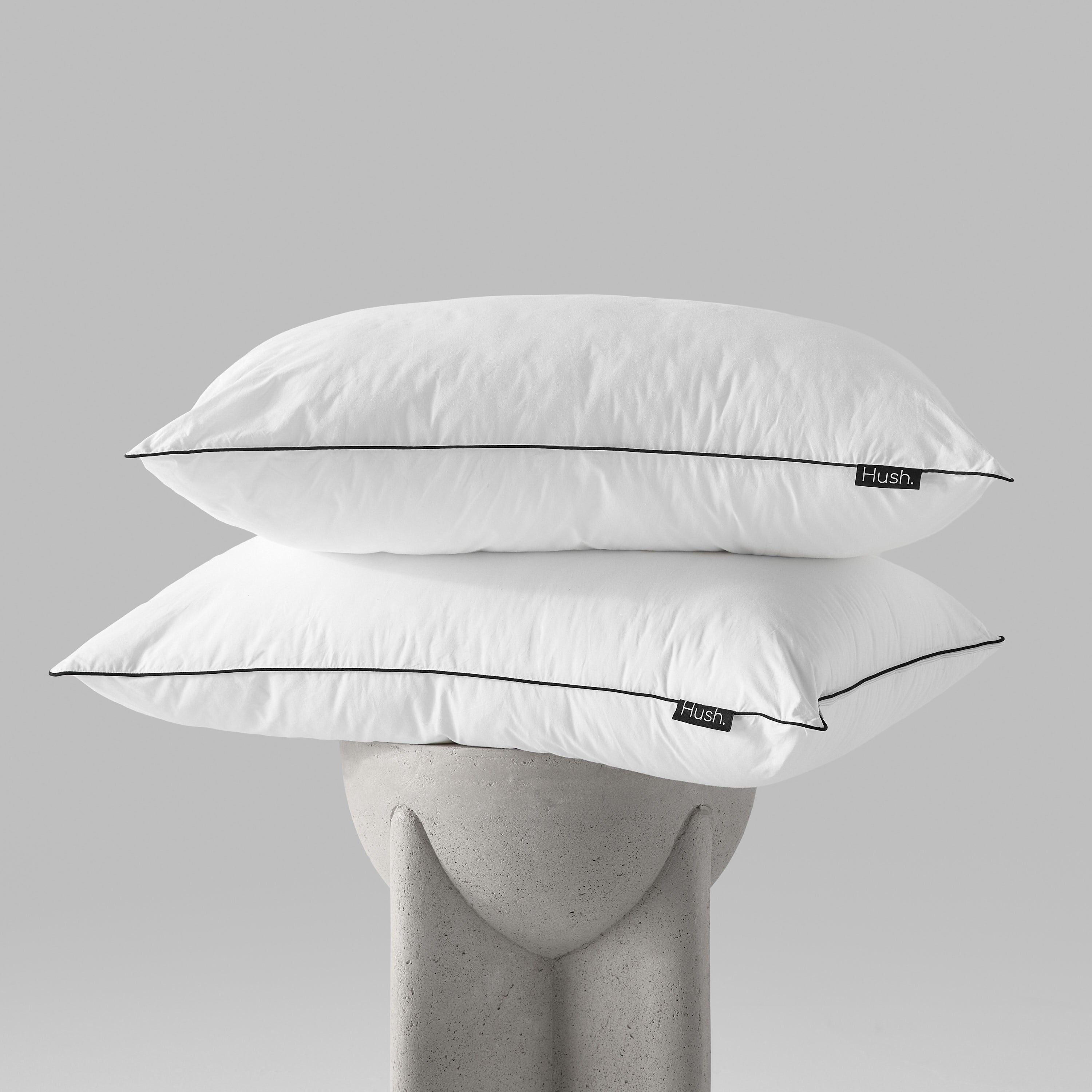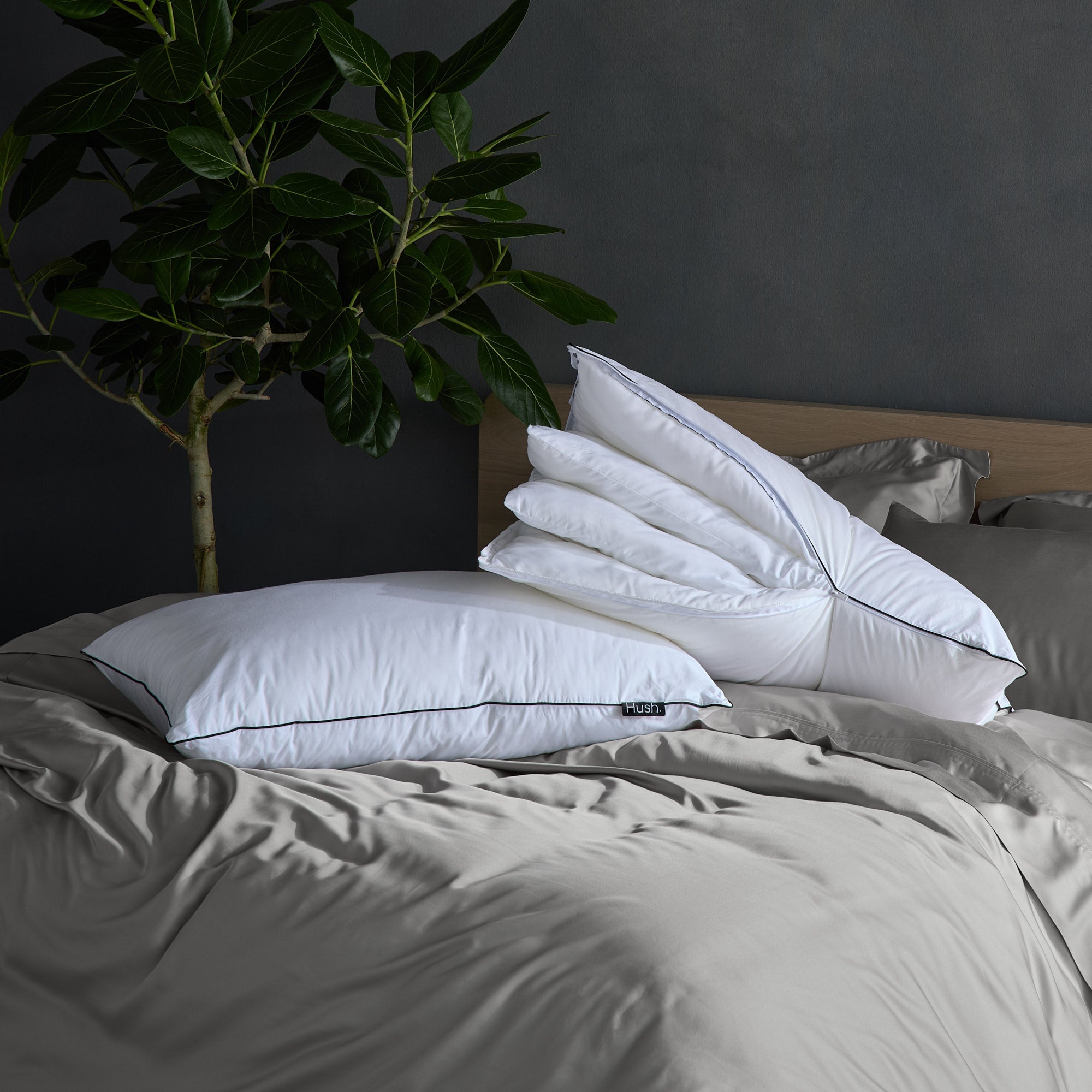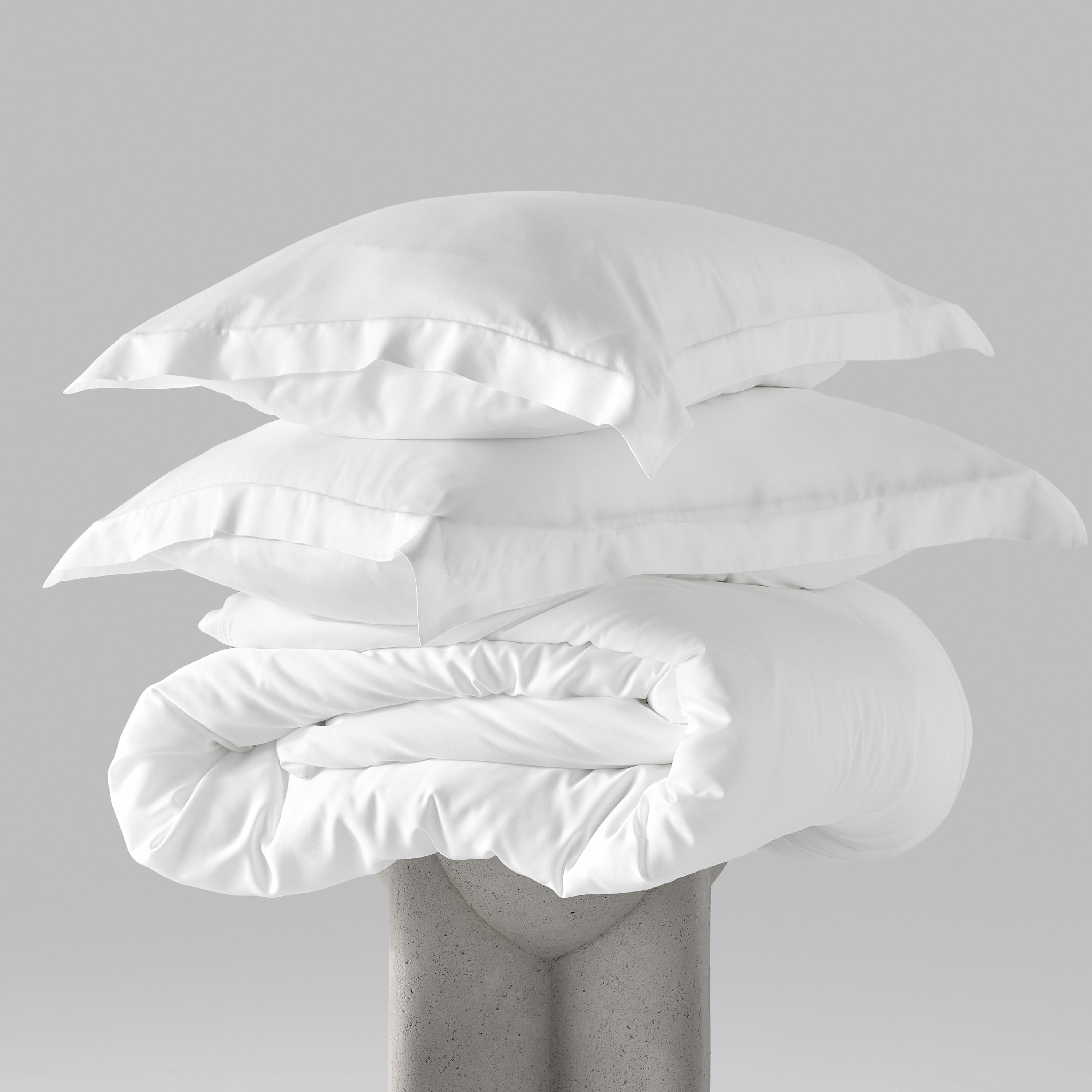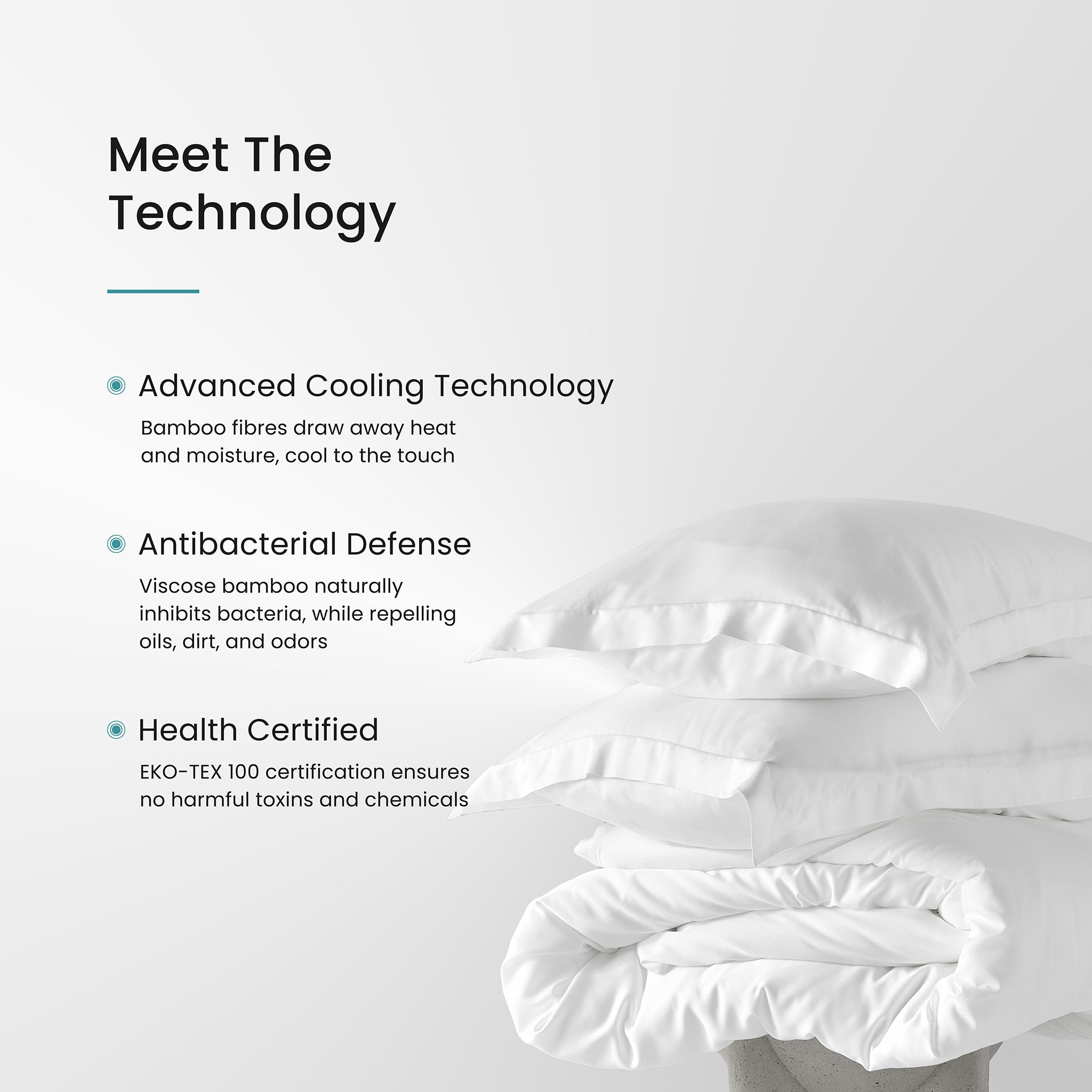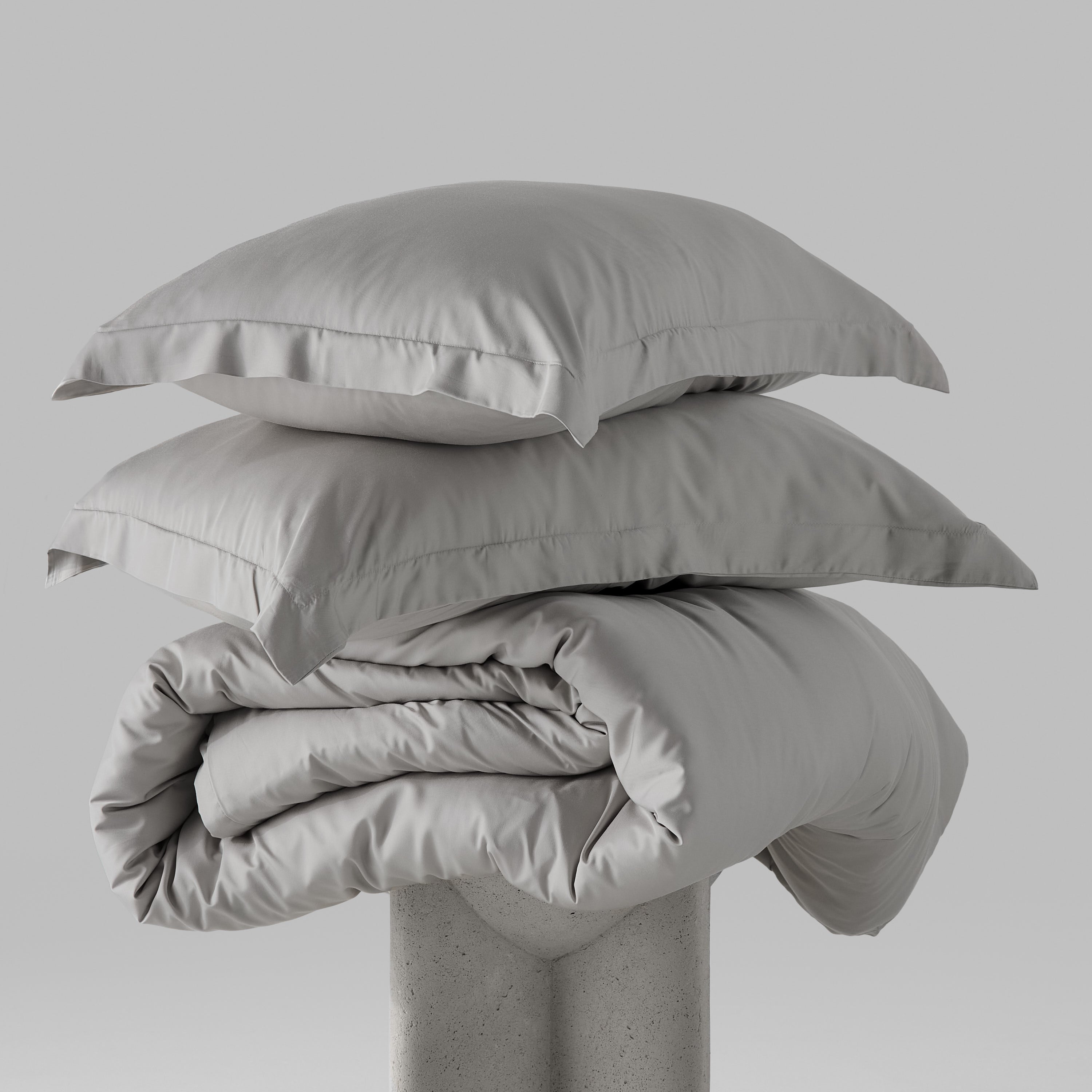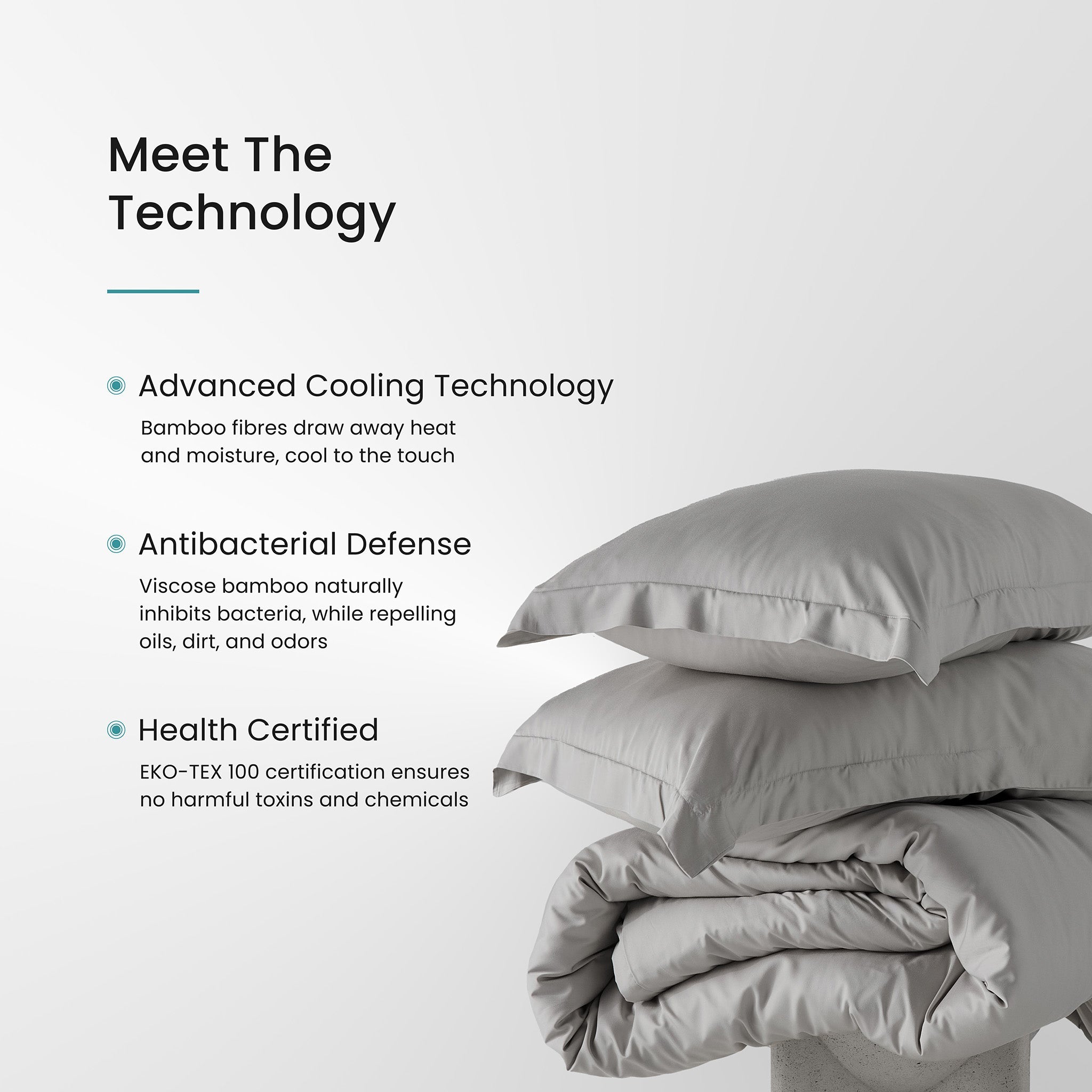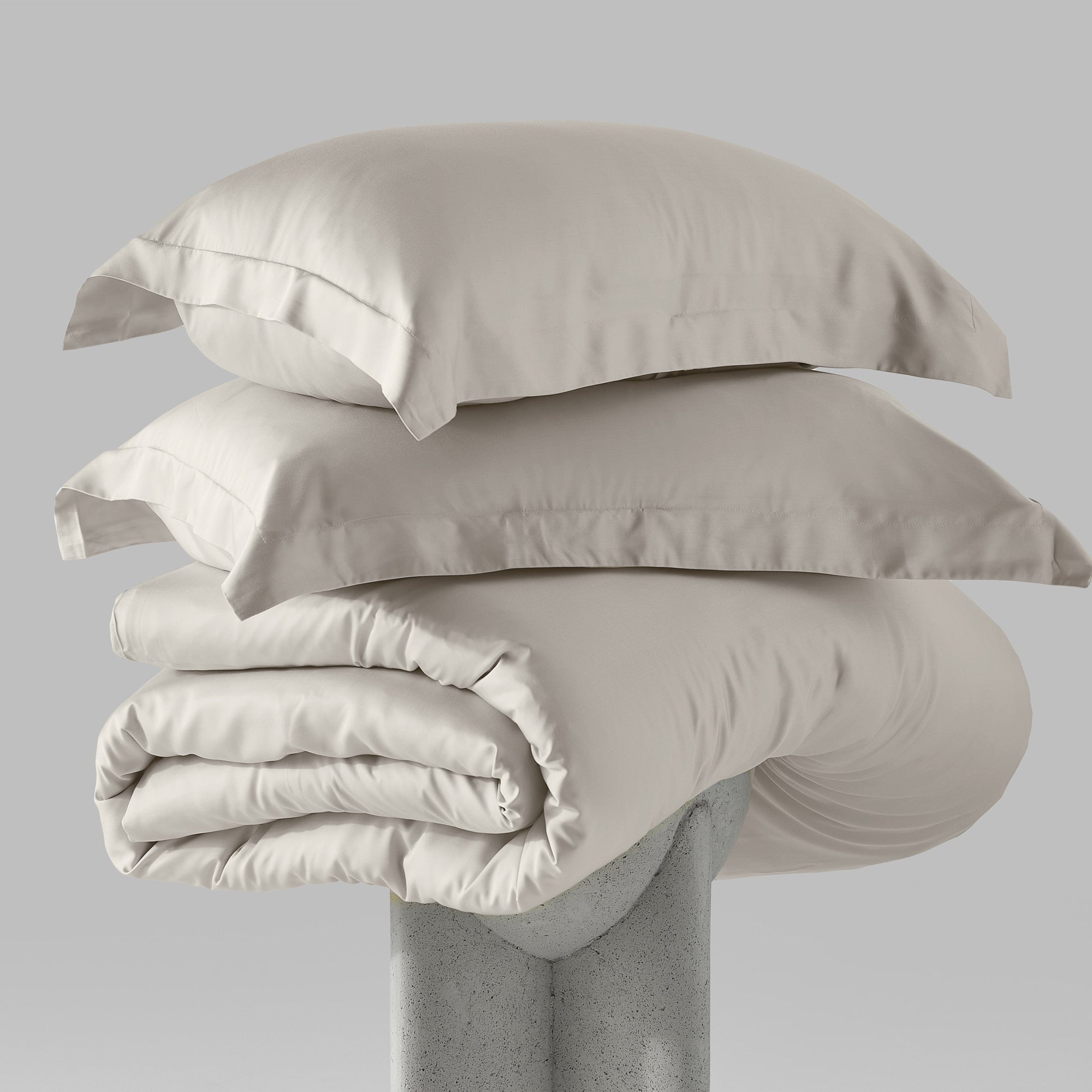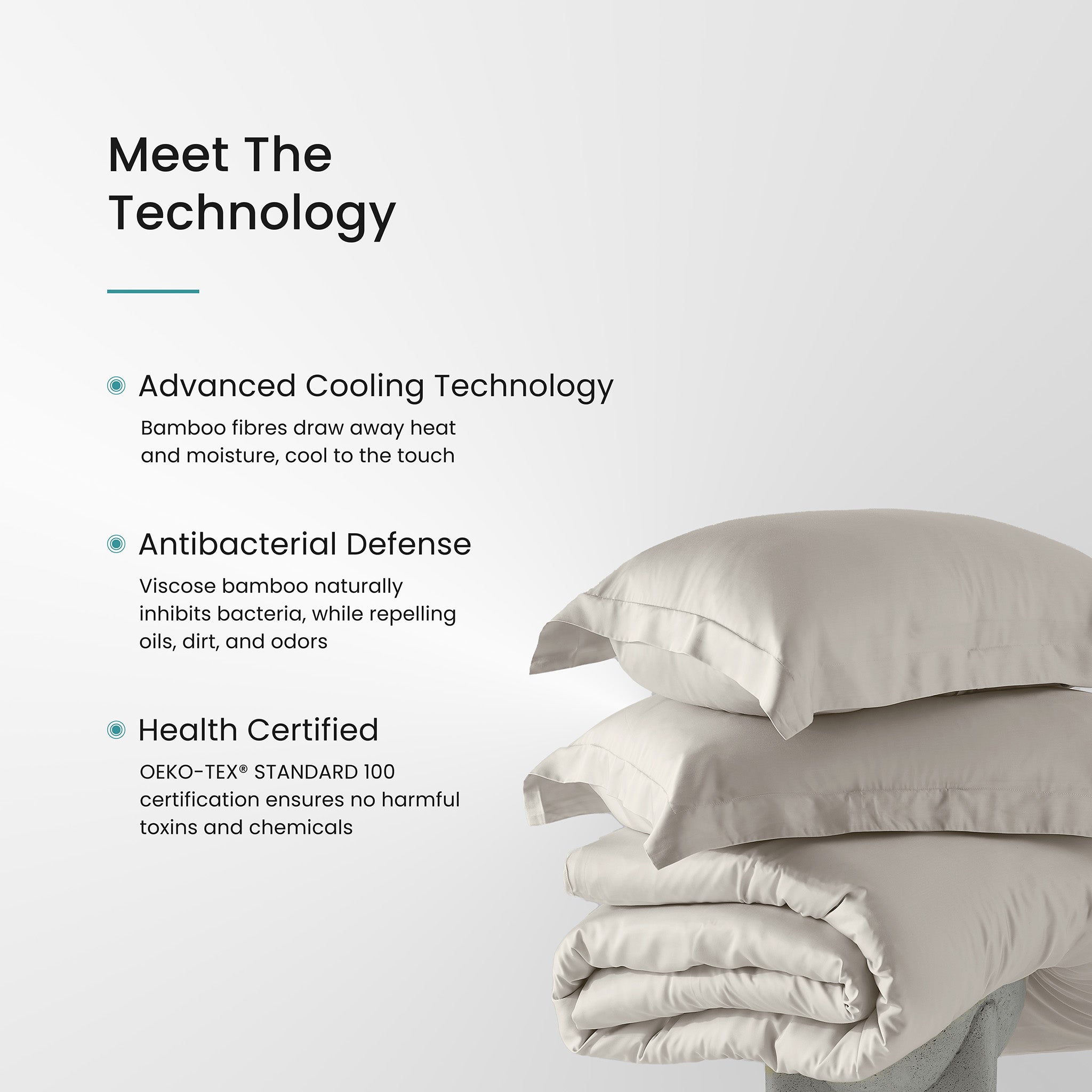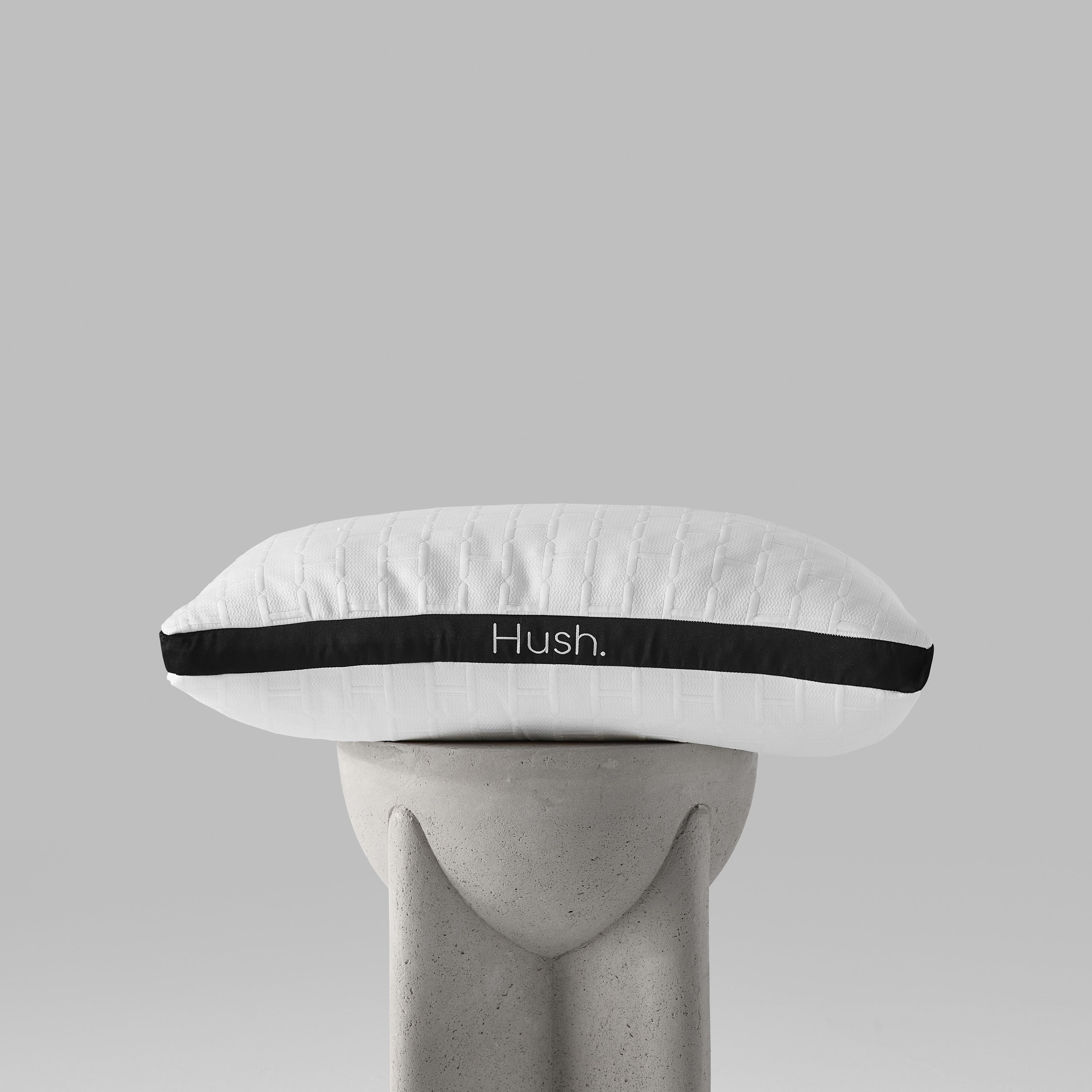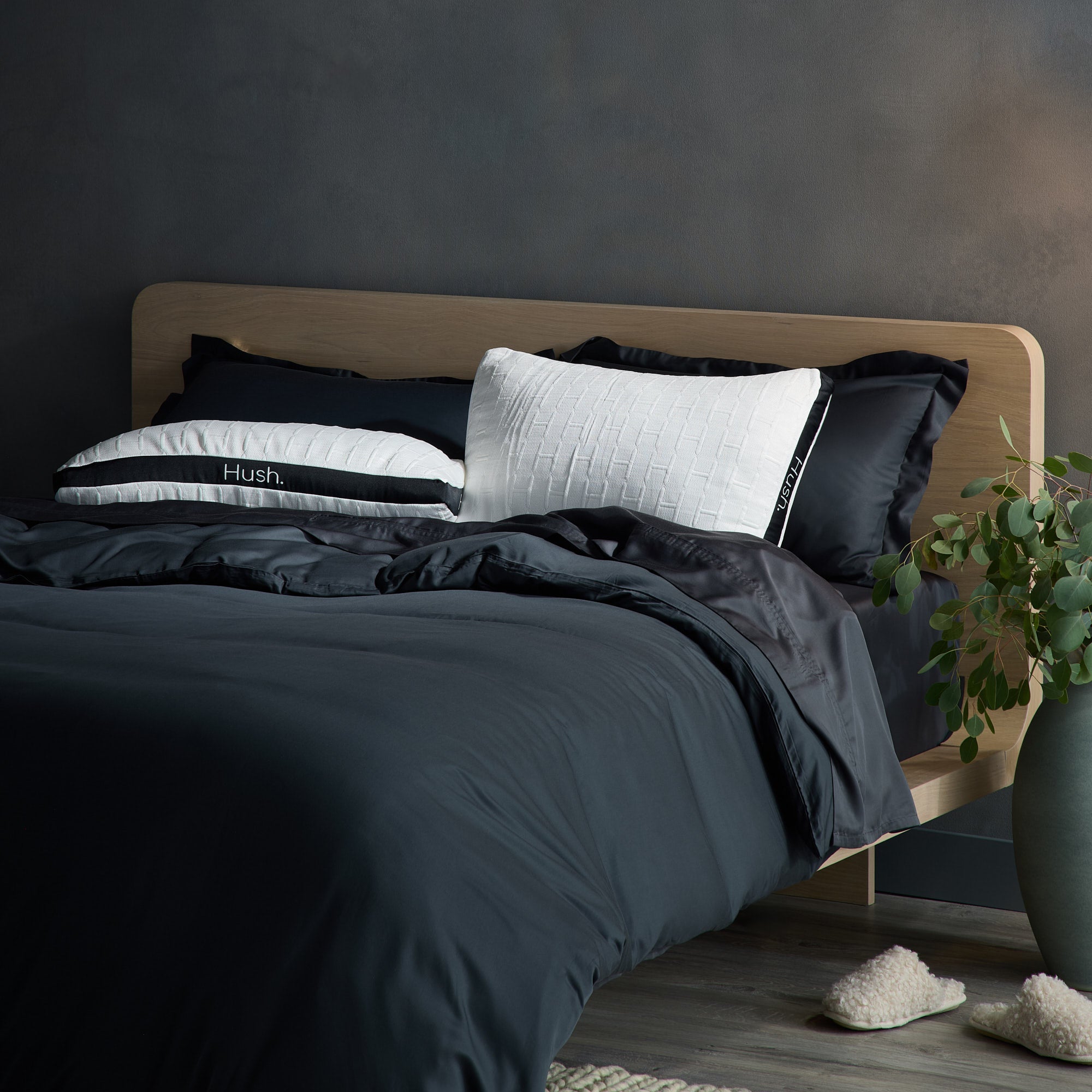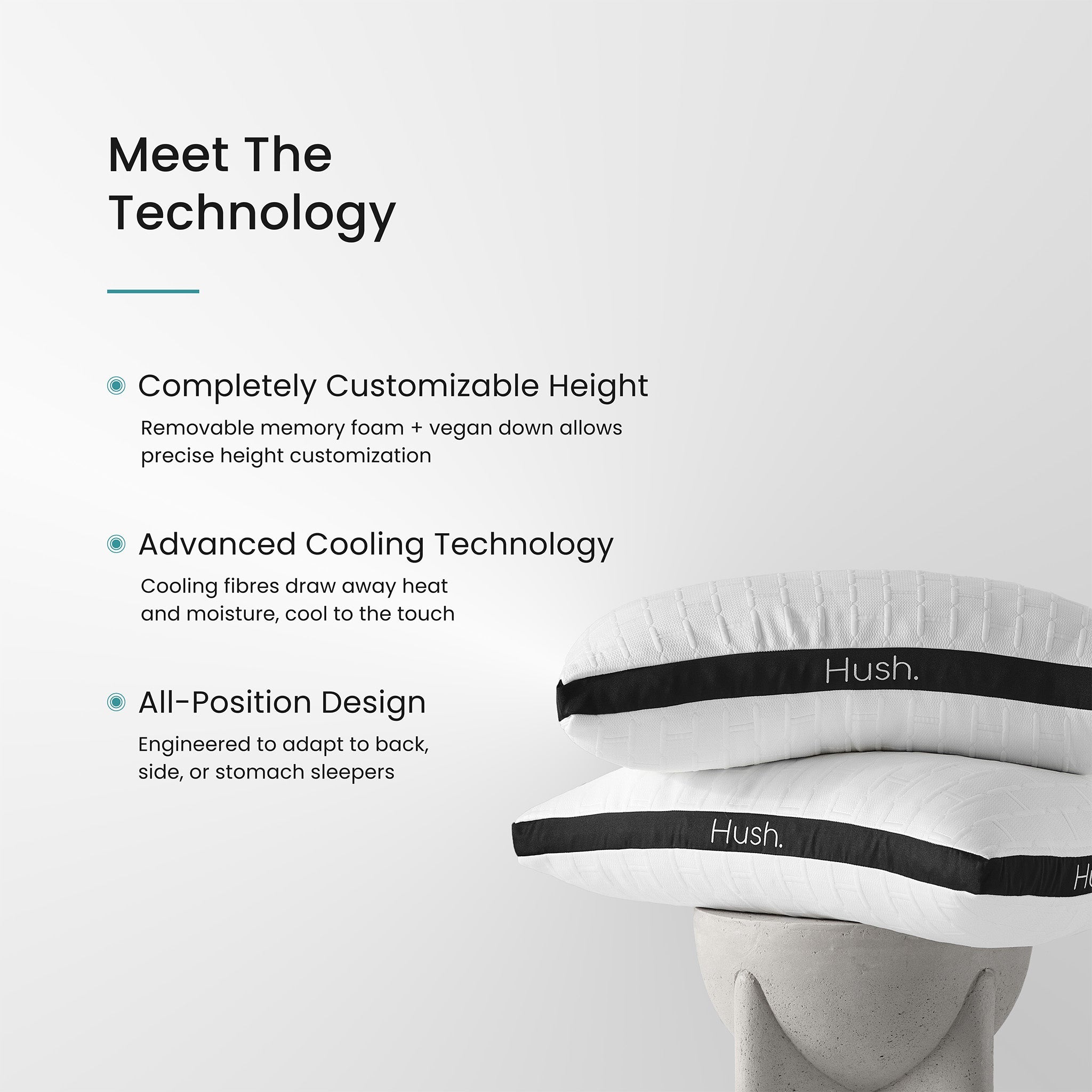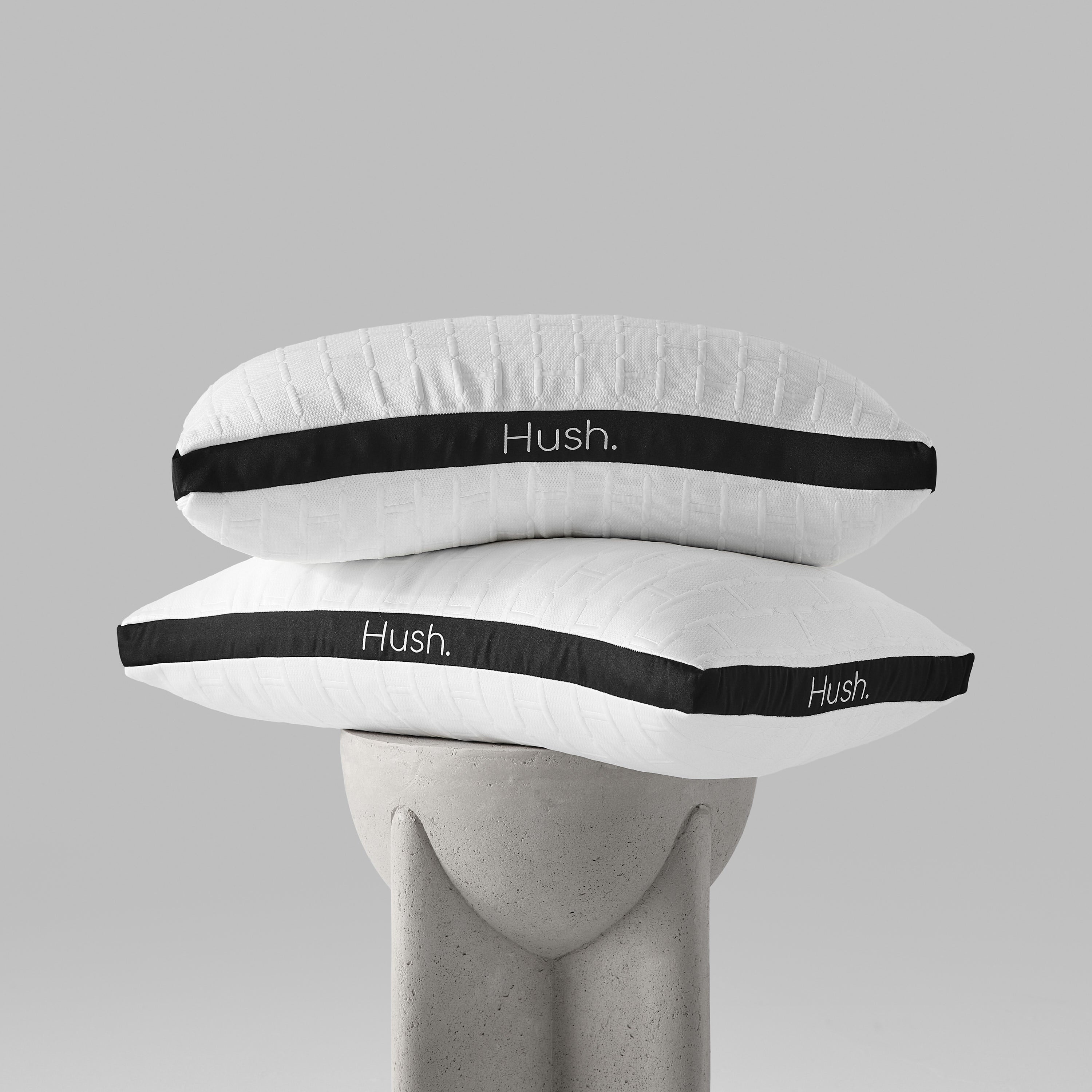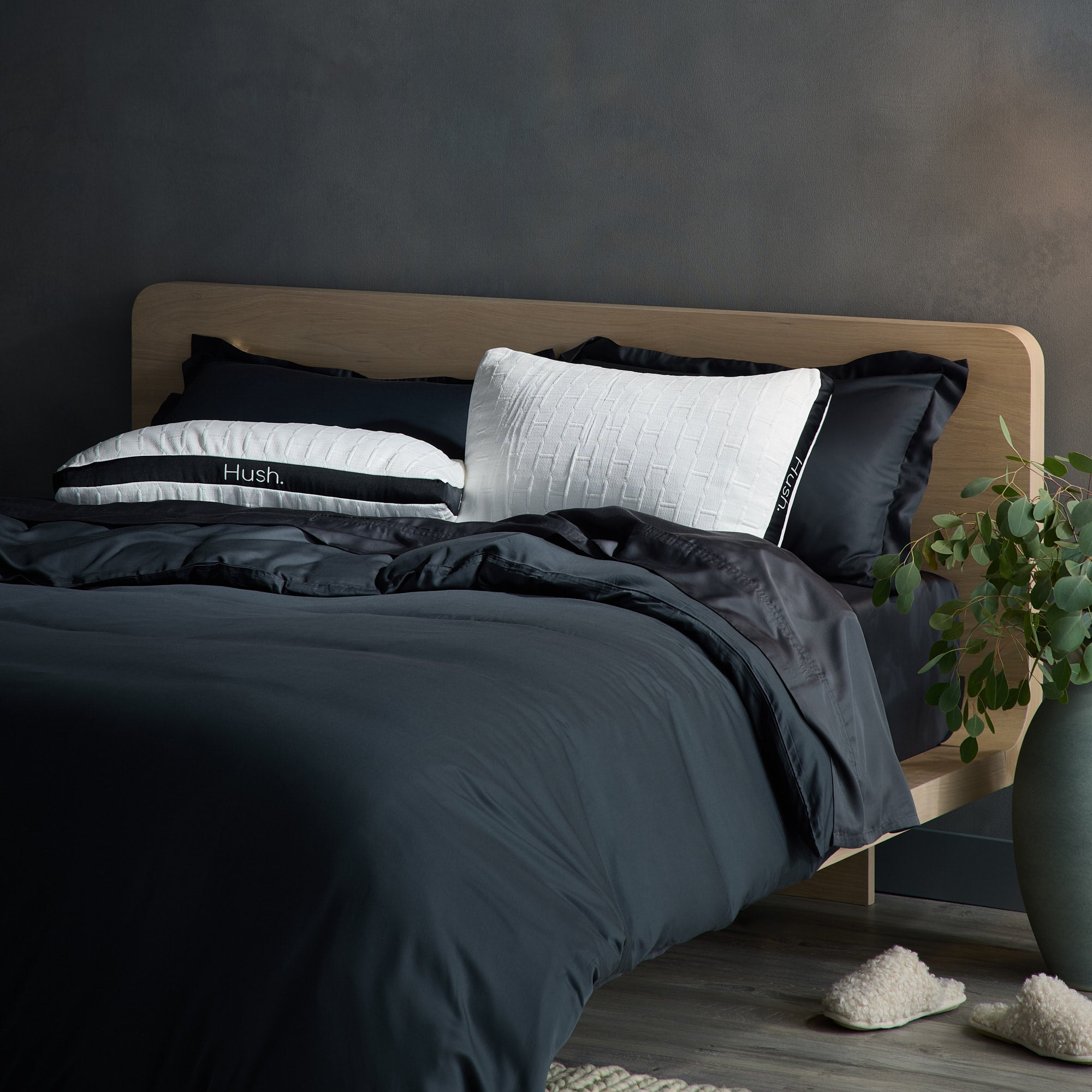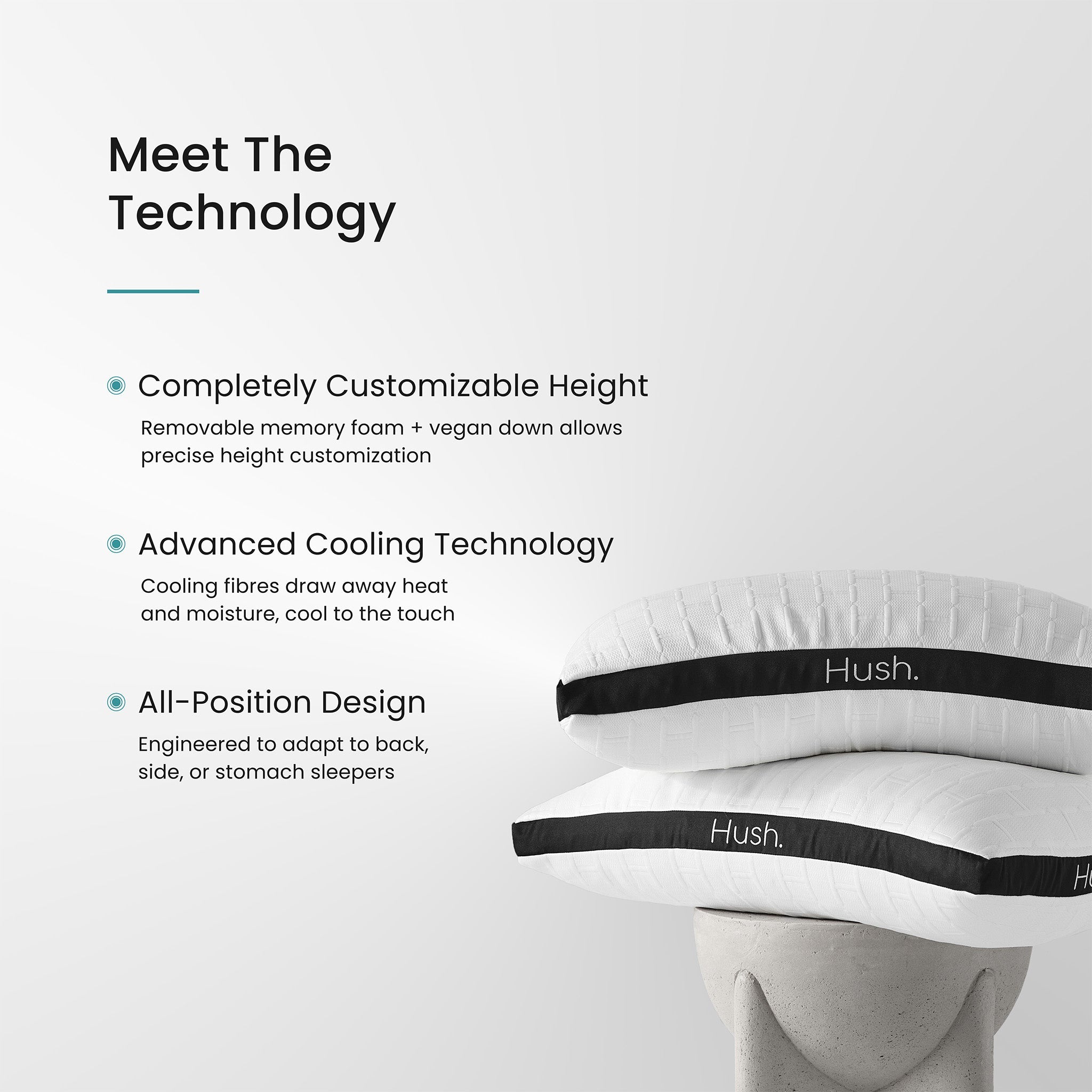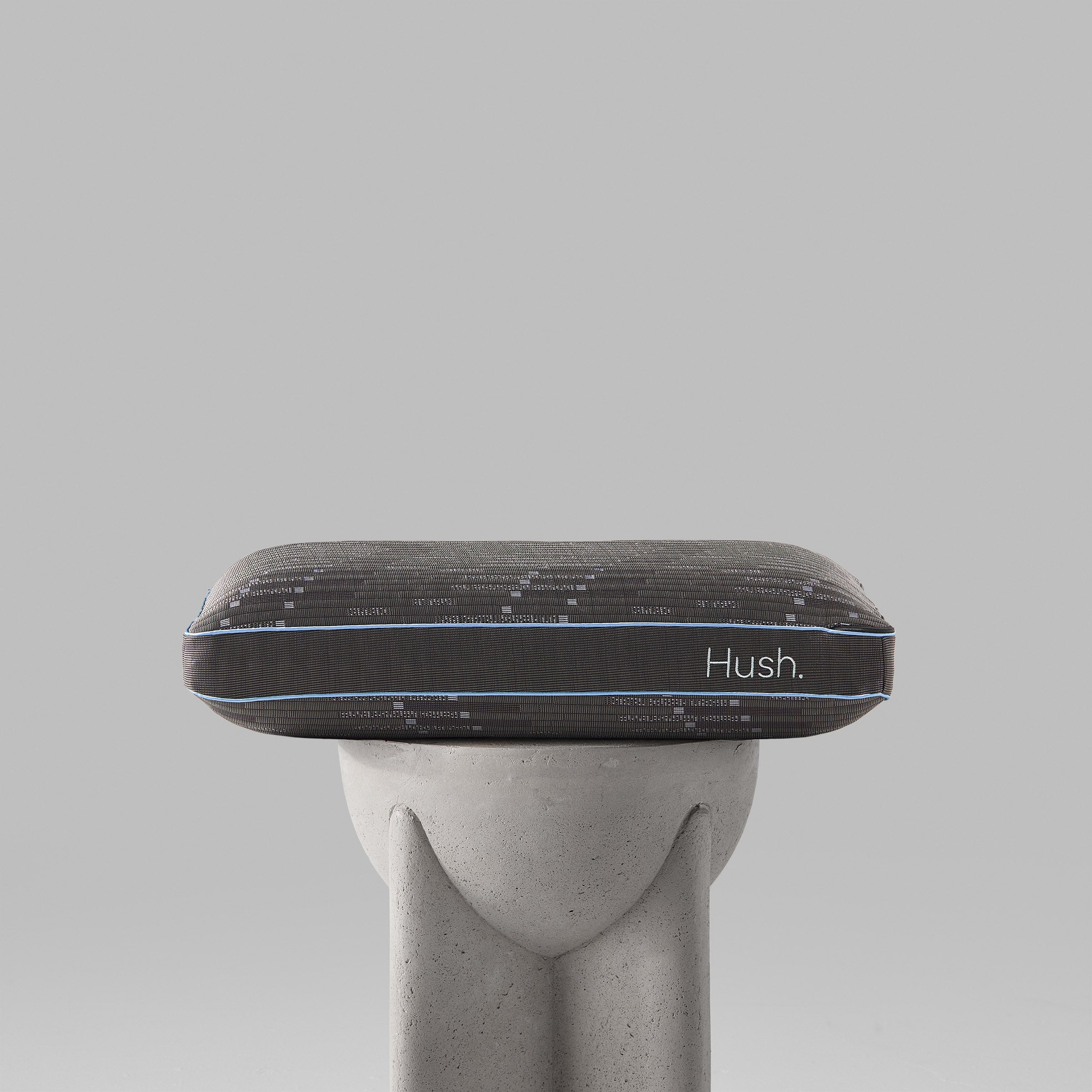If you’re in the middle of choosing between duvet fabrics, you’ve likely come across those who tout the benefits of goose down duvets. Warm, soft, and lightweight, it’s not difficult to see why goose down filling is an attractive bedding option - but just how great is this type of duvet, and how does it compare to other fabrics? Let’s take a look.
Understanding Different Types of Bedding
Before taking a closer look at goose down, it’s important to note that bedding plays a pivotal role in our sleep quality; the materials you choose influence your comfort, the bed's temperature regulation, and even potential allergens. Predominantly, bedding falls into three categories:
Synthetic: These include materials like polyester and microfiber - these tend to be cost-effective and hypoallergenic, but may not offer the same breathability as natural materials.
Natural: This is where materials like cotton, wool, and bamboo fall: they're often breathable, regulate temperature well, and offer a range of comfort levels. Notably, bamboo sheets, a sustainable and vegan choice, are gaining immense popularity for their softness and reduced environmental impact - you can take a look at our range of bamboo sheets and queen duvet cover options on our website.
Animal-Based: This category encompasses materials like silk, goose down, and other feather-based products; these fabrics are prized for their plush feel but come with ethical and care considerations, which we’re going to explore further on.
What are Goose Down Duvets?
Goose down duvets are crafted using the soft under-feathers from geese. These feathers, located beneath the exterior layer, are incredibly soft, fluffy, and insulating, which makes them a top choice for those seeking warmth without the weight. Unlike regular feathers, goose down lacks quills, which grants the duvet its characteristic softness.
While goose down duvets undoubtedly offer a luxurious sleeping experience, they are, at times, shrouded in ethical dilemmas - particularly when it comes to the methods of sourcing these feathers, as well as the impact on the birds have been topics of concern.
Benefits of Goose Down Duvets
So, where do goose down duvets excel? Here are just some known benefits:
Warmth
Goose down is naturally insulating, which means it traps heat efficiently and provides adequate warmth, no matter how cold it is outside. This makes this type of duvet ideal for the winter months, or those who live in perpetually cold climates.
Lightweight
Despite their warmth, goose down duvets are surprisingly light; this ensures comfort without feeling weighed down, which can often disturb sleep and reduce sleep quality.
Breathability
Unlike some synthetic materials, goose down has decent breathability. It allows for some airflow, preventing overheating.
However, it's crucial to remember that while these benefits are tempting, they might not align with everyone's ethical or comfort preferences. And this is where alternatives, like animal-free duvets and bamboo sheets, come into play. Soft as a cloud, sustainable, and vegan-friendly, bamboo sheets offer a compelling alternative to animal products, with all the benefits and none of the environmental impact. But what exactly are the drawbacks of goose down duvets? Let’s take a closer look.
Drawbacks of Goose Down Duvets
Ethical Concerns
Goose down duvets tend to be more expensive due to the cost of sourcing down feathers ethically; this is because ethical sourcing means ensuring the humane treatment of geese, which can drive up the cost of the duvet. Additionally, concerns regarding animal welfare and the practice of live-plucking have led some consumers to seek alternative, cruelty-free bedding options (such as bamboo and other vegan fibres).
Maintenance
Secondly, maintaining a goose down duvet can be quite a task, as they require special care when cleaning: unlike synthetic or anti-allergy duvets, goose down duvets cannot be tossed into a washing machine without risking damage to the fill. What this means is that they often require professional cleaning or a specialized washing process, which can be time-consuming and costly. Tip: Don’t forget to take a look at our blog on how to wash a duvet for further guidance when washing all duvet materials.
What's the Best Duvet Cover Material?
When discussing duvet covers, it's essential to understand that certain fabric choice might better suit certain climates and seasons, as well as your own preferences when it comes to the weight, feel, and tog of a duvet. Here are some of the most common duvet materials to pick from:
Cotton
A classic choice, cotton is breathable and soft. However, it might not offer the moisture-wicking properties of some modern fabrics, which can make it a breeding ground for allergens and bacteria.
Vegan Fibres
For those looking for the benefits of a goose down duvet without the associated ethical concerns, vegan fibres - like those we use for our duvets at Hush - offer the same lightweight breathability as animal fibres, with added benefits including hypoallergenic properties and temperature regulation.
Silk
Known for its luxury, silk provides a smooth and cool touch. On the downside, it can be slippery and requires careful maintenance to keep the silk in tip-top condition.
Synthetics
While the more affordable option, some synthetic fabrics might lack the breathability and comfort of natural or animal fibres - they may also require a manufacturing process that is more harmful to the environment, which doesn’t make them attractive in the eco-friendly stakes.






